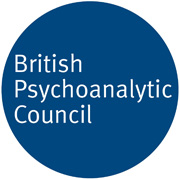Cognitive-Behavioural Therapy (CBT)
CBT focuses on how your thoughts, beliefs and attitudes affect your feelings and behaviour, and teaches you coping skills for dealing with your symptoms of anxiety, depression and other difficulties. I strongly believe that our feelings and behaviours are not caused by what happens to us in life, but how we interpret our life experiences and the meanings that we attach to these experiences. For instance, if you think about a situation negatively then you might experience negative feelings as a result, and those bad feelings might then lead you to behave in an unhelpful or unproductive way. Such negative thinking patterns can start as early as in childhood. Say, if you were mocked or bullied in school, you may have thought "I'm stupid" or "I'm worth nothing" and over the years you started believing these negative thoughts and maladaptive beliefs, until they became habitual and automatic. The goal of CBT is to identify, challenge and modify such negative thoughts, underlying assumptions and core beliefs, as well as associated unhelpful behaviours, which may be affecting you in different areas of life. Then, you can learn new and more rational ways of thinking and more effective coping strategies. In turn, this can help you become more confident, change the way you feel about yourself and certain life experiences, and enable you to make significant and long-lasting changes. CBT is recommended by NICE for depression, anxiety, PTSD and other mental health difficulties.









